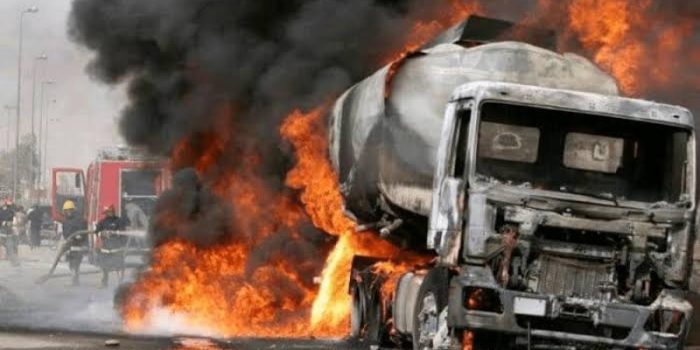The 2023 presidential election, like every other election in Nigeria, was filled with numerous promises from candidates of various parties.
As of the time of this election, Nigerians were purchasing petrol at ₦195 per litre, with speculations suggesting an imminent rise to ₦200.

Nigerians could not stop wailing and pouring their frustration on the Buhari-led government as of the time.
To them, the buying petrol at that price was too much of a burden.
Unknown to them that the worst was yet to come.
Trust Nigerian politicians, this issue of petrol became a strong point of campaign.
Promises from left, right and center echoed from every corner of the country.
Let’s walk down memory lane to January 25, 2023.
That day, Bola Tinubu, the All Progressives Congress (APC) candidate stormed Abeokuta for his campaign.
Speaking to supporters Tinubu vowed to tackle pressing issues such as fuel scarcity and escalating prices, assuring Nigerians of a more stable fuel market.
“They are plotting, but they will fail. They said fuel prices will increase and reach ₦200 per litre. Go and relax; we will bring it down,” Tinubu screamed into the microphone before him in his native Yoruba language.
Tinubu emerged victorious defeating Atiku Abubakar of the Peoples Democratic Party (PDP) and Peter Obi of the Labour Party (LP).
His victory left supporters swimming in the ocean of expectations with high hope that Tinubu would deliver on his campaign promise, especially as his mandate was that of Renewed Hope.
But guess what?
On May 29, 2023, during his inaugural speech, Tinubu declared an end fuel subsidy.
This announcement came with immediate effects leaving Nigerians in hardship.
Since that moment, the price of petrol has been on a steady increase.
Notably, there have been four instances of petrol price hikes under Tinubu’s administration over the past 16 months.
We will highlight them in this article.
Ready?
Let’s go.
May 2023
The first petrol price hike occurred shortly after Tinubu announced the subsidy removal in May 2023, disrupting the petroleum industry.
Following the announcement, the Nigerian National Petroleum Company Limited (NNPCL) raised the price from ₦195 to between ₦448 and ₦557 per litre, marking a 185.64% increase.
The federal government defended the hike, explaining that the subsidy, which cost over ₦400 billion monthly, was unsustainable.
June 2023
Barely a month later, in June 2023, the price of petrol rose again from ₦557 to N617 per litre, an increase of 10.77%.
NNPCL attributed the hike to market dynamics.
Chinedu Okoronkwo, President of the Independent Petroleum Marketers Association of Nigeria (IPMAN), confirmed that global economic factors beyond local control were responsible for the increase.
September 2024
The third adjustment came in September 2024, with prices jumping by 45.38% to between ₦855 and ₦897 per litre.
Also Read: Removing Fuel Subsidy Before Fixing Refineries A Mistake — SAN
NNPCL revealed that the increase resulted from financial difficulties, including high debts to petrol suppliers.
In a statement, NNPCL’s Chief Corporate Communications Officer, Olufemi Soneye, disclosed that the company was under severe financial pressure, which posed a threat to the sustainability of fuel supply.
October 2024
The most recent increase followed NNPCL’s decision to step back from its role as a middleman between marketers and the Dangote Refinery.
This opened the market to direct dealings between the refinery and marketers.
Consequently, NNPCL and other fuel stations adjusted their pump prices to align with refinery costs, leading to a 15% increase to ₦1,030 per litre.

